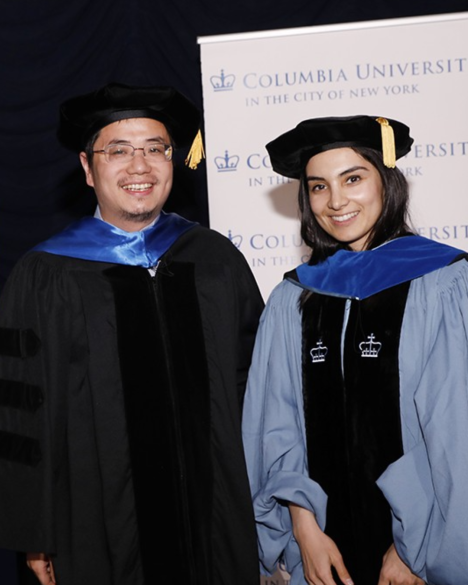Chaolin Zhang
Titles
Associate Professor, Department of Systems Biology
Website
Dr. Chaolin Zhang is an Associate Professor in Department of Systems Biology, Department of Biochemistry and Molecular Biophysics, and Motor Neuron Center at Columbia University. His lab takes a multidisciplinary approach to studying mechanisms and functions of post-transcriptional gene regulation, in particular alternative splicing in both normal and disease contexts. On the mechanistic side, the Zhang lab focuses on fundamental understanding of the targeting specificity of RNA-binding proteins (RBPs), how they regulate alternative splicing in various cellular contexts, especially in the nervous system, and how such regulation can be disrupted by mutations and genetic variations. On the functional side, the lab aims to uncover the roles of RBPs in determining the neuronal cell fate, morphological and functional properties during neural differentiation and maturation. More recently, the lab has also been working on translating fundamental knowledge on RNA regulation to precision genetic medicine, with a particular focus on multiple devastating monogenic diseases affecting the central nervous system.
Dr. Zhang and his lab have pioneered RNA Systems Biology approaches to investigating splicing-regulatory networks. Dr. Zhang’s work has led to breakthroughs in mapping protein-RNA interactions at single-nucleotide resolution on a genome-wide scale (e.g., Zhang & Darnell, Nat Biotech, 2011; Weyn-Vanhentenryck, Cell Rep. 2014). Building on this unprecedented resolution, his lab has developed innovative statistical models to better define the binding specificity of RBPs, which led to discoveries of novel binding modes of old RBPs under decades of investigations, with implications in development and cancer (e.g., Ustianenko, Mol Cell, 2018 (cover story); Feng, Mol Cell, 2019). Dr. Zhang also developed an integrative modeling strategy to define splicing-regulatory networks by combining multiple modalities of genomic data and evolutionary signatures (Zhang, Science 2010). The lab has leveraged these networks to elucidate RBPs driving molecular diversity underlying neurodevelopment (e.g., Weyn-Vanhentenryck, Nat Commun, 2018; Jacko, Neuron, 2018) and neuronal cell type diversity (Feng, PNAS, 2021).
To approach the research goals, Dr. Zhang and his lab regularly use a variety of experimental and computational approaches and techniques, including CRISPR-based genome engineering, high-throughput screening, deep sequencing, probabilistic modeling and machine learning (e.g., Bayesian networks and deep learning). The lab uses both cell-based (e.g., mouse ESCs and human iPSCs and directed neuronal differentiation) and mouse models. Work in his lab has been funded by multiple Institutes at NIH, Simons Foundation, and Columbia Precision Medicine Initiative.
Before starting his academic career, Dr. Zhang was originally trained as an engineer in Department of Automation, Tsinghua University (Beijing). He then completed his PhD training in the Cold Spring Harbor Laboratory, and Postdoc training at Rockefeller University and Howard Hughes Medical Institute. He was awarded a K99/R00 by NIH in 2011, joined Columbia as an Assistant Professor in late 2012, and received tenure in 2019. Trainees from the Zhang lab have also been recognized by multiple awards, including NSF Graduate Research Fellow, Titus M Coan Prize for Excellence in Research, Columbia Precision Medicine Fellow, and NIH K99/R00





